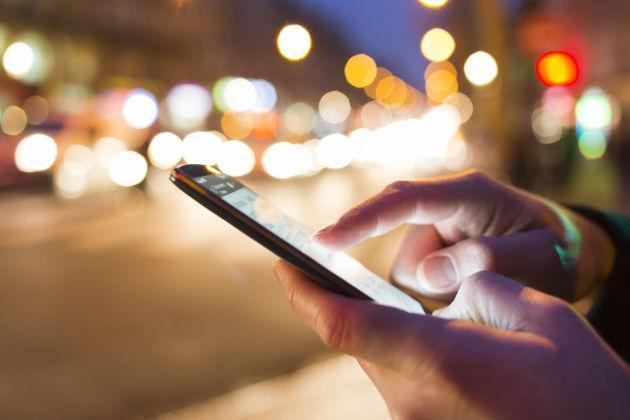Modern developments in technology have enacted an unprecedented and irreversible shift in the way we live.
The uncertain, and often unforeseeable, consequences of digitization seem to have become a perennial concern of contemporary discourse in the media. Look no further than shows like “Black Mirror” and “The Social Dilemma” as proof of the pervasive cultural anxiety we feel about potentially getting tangled up in our own web — pun intended.
I, too, have become unsettled by my strange and increasingly dependent relationship with technology, especially with my cellphone.
To my discomfort, it has become an almost cyborg-esque extension of myself; a lifeline, deeply embedded in the structure of my everyday life. There are very few moments wherein it is not by my side or in my hands.
Dependency is almost an understatement. It seems every aspect of my life—whether it be school, work, or family — is somehow facilitated or administered by something digital. Technology has become such a deep-rooted part of our lives it can be difficult to go more than even a few minutes without compulsively checking our phones for no reason whatsoever.
I often feel my excessive screen time has done serious damage to my attention span and my capacity for experiencing delayed gratification.
As an English major, setting aside some time to read a novel should not be difficult for me. When I was a kid, reading for long stretches of time was easy. Trying to read as an adult who has been enculturated in the omnipresent Internet age, however, is a Herculean task.
After all, why work for entertainment when you can just mindlessly scroll through your phone instead? Logically, I know reading or being otherwise productive is better than perusing social media, but picking up my phone for a “quick break” remains a constant temptation. This is especially problematic when those “quick breaks” tend to spiral into several hours at a time.
My predicament is not unique. This seems to be a rather common issue these days, one almost universal among my peers.
What sort of shift does this attention fragmentation represent? For decades, people have bemoaned the threat posed by film and television to more contemplative forms of pleasure like reading. Has the omnipotence of the Internet finally pulled the plug on everything else?
In some ways, yes.
There will always be people like myself, who will work, perhaps unsuccessfully, to overcome the mind-scattering effect social media can have on more traditional attempts at gratification. I have dedicated my life to books and am determined to reclaim the ease with which I read them in childhood, no matter how frustrating it becomes.
Yet as part of a society with an ever-increasing reliance on technology, I sense this damage is both irreversible and infinite. What foreseeable development could possibly inspire people to give up their phones? I certainly cannot think of one.
As a culture, we should consider counting our losses and moving on. Perhaps it is time to rethink how we experience life’s more satisfying, sophisticated pleasures.
The recent uptick in the popularity of things like podcasts and audiobooks might shine some light on possible ways forward; instead of trying to settle the wandering and impatient modern mind to its former state, it might be more helpful to adapt old pleasures to the digital form in a way that maximizes efficiency, like listening to an audiobook while simultaneously working on something else.
Maybe our culture will drift off into a lack of interest in such things. The U.S. has already been accused of exemplifying this more hedonistic bent, but I’m not convinced we’re quite so doomed yet. I certainly hope we aren’t.
Art, literature, and intellectual stimulation have for a long time been considered indivisible aspects of any given culture. We need to rethink and adapt these essentials to carry them with us into a new age of human life.
Evan Leonhard is an English and philosophy major from New Orleans.
Opinion: ‘Irreversible’ dependence on technology will hurt us in the long run
October 19, 2020
Man using his Mobile Phone in the street, bokeh





